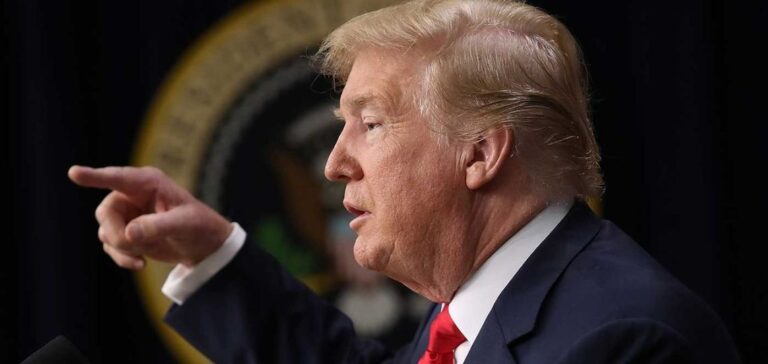Venezuela faces renewed uncertainty surrounding the extension of oil licenses held by international companies, as a final decision from the Trump administration looms. Initially granted under the Biden administration, these licenses allow Chevron, Maurel & Prom, Repsol, and Eni to continue their operations despite U.S. sanctions imposed on the country. Currently, about 30% of Venezuelan oil production directly depends on foreign multinationals, representing a significant economic windfall amid ongoing economic fragility. National production, around one million barrels per day currently, remains far below historical levels of over three million barrels recorded in the early 2000s.
Reversals and diplomatic stakes
Donald Trump initially revoked the licenses in February, giving companies until early April to cease operations, before ultimately extending the deadline to May 27 following diplomatic negotiations. These frequent policy reversals have created chronic uncertainty, complicating field operations, notably for Chevron, the largest foreign producer in the country. According to Francisco Monaldi of the Baker Institute, the lack of clear decisions leaves operators and their subcontractors struggling to establish long-term strategies. Additionally, contradictions within the U.S. administration emerged, particularly between Special Envoy Richard Grenell and National Security Advisor Marco Rubio, further clouding the final outcome.
Recent negotiations led to the release of an American military detainee held in Venezuela, suggesting a potential extension of oil licenses. However, Marco Rubio publicly contradicted this scenario, explicitly stating the licenses would expire as planned, thereby maintaining strategic uncertainty. Chevron, for its part, is intensifying diplomatic efforts by arguing that its departure could benefit Russian or Chinese companies, which may fill the void left by American firms. This potential shift in Venezuela’s oil landscape concerns Washington due to significant geopolitical implications.
Potential economic consequences
For Venezuela, whose economy is heavily reliant on oil revenues, the termination of licenses would directly impact the country’s economic recovery, which began in recent years. Graciela Urdaneta, an economist at Ecoanalitica, emphasizes that these foreign companies ensure a steady inflow of currency, crucial for local foreign exchange stability. Manuel Sutherland, an economist at the Central University of Venezuela, estimates that an interruption in licenses could halve annual oil revenue projections, reducing them from $16 billion to just $8 billion. Despite these potential challenges, the Venezuelan government claims readiness to circumvent restrictions using alternative trading systems or indirect commerce.
Nicolas Maduro Guerra, the son of Venezuela’s president, recently asserted that the country was ready to “move forward with or without sanctions.” According to him, Caracas has developed suitable mechanisms to continue selling oil even without American multinationals, although these transactions may require substantial commercial concessions, such as significant discounts or merchandise exchanges. Maduro Guerra, a rising figure in the United Socialist Party of Venezuela (PSUV), believes that the withdrawal of American companies would ultimately harm U.S. economic and geopolitical interests more than those of Venezuela.
Alternatives and circumvention strategies
If Chevron, the main foreign player, leaves the country, other multinationals such as Spain’s Repsol, primarily active in gas, might explore new mechanisms to maintain their presence. PDVSA, Venezuela’s national oil company, would need to rapidly adopt alternative solutions, possibly through strengthened partnerships with non-Western companies. Elias Ferrer from Orinoco Research highlights the possibility that alternative markets will continue buying Venezuelan oil despite sanctions, likening the situation to illicit trade where “there will always be a buyer.”
The Maduro government emphasizes the autonomy of the national oil industry, asserting that Venezuelan human resources possess the necessary skills to sustain production. This stance underscores a commitment to resilience in the face of external economic pressures, while leaving open questions about the actual impact of a potential massive withdrawal of foreign companies. Venezuela’s immediate economic future now heavily depends on this impending decision, closely watched in both Caracas and Washington.






















